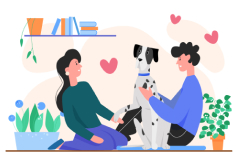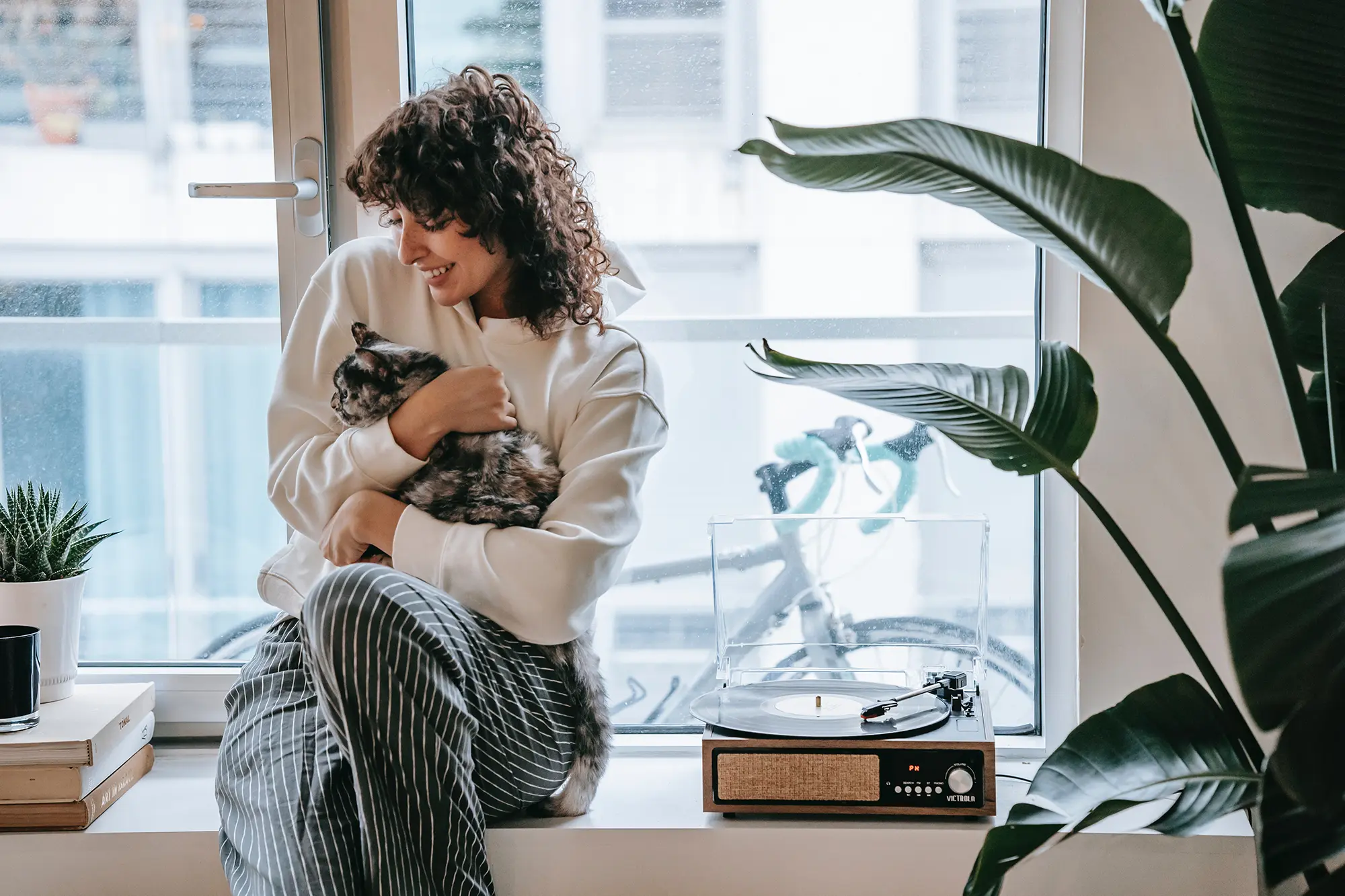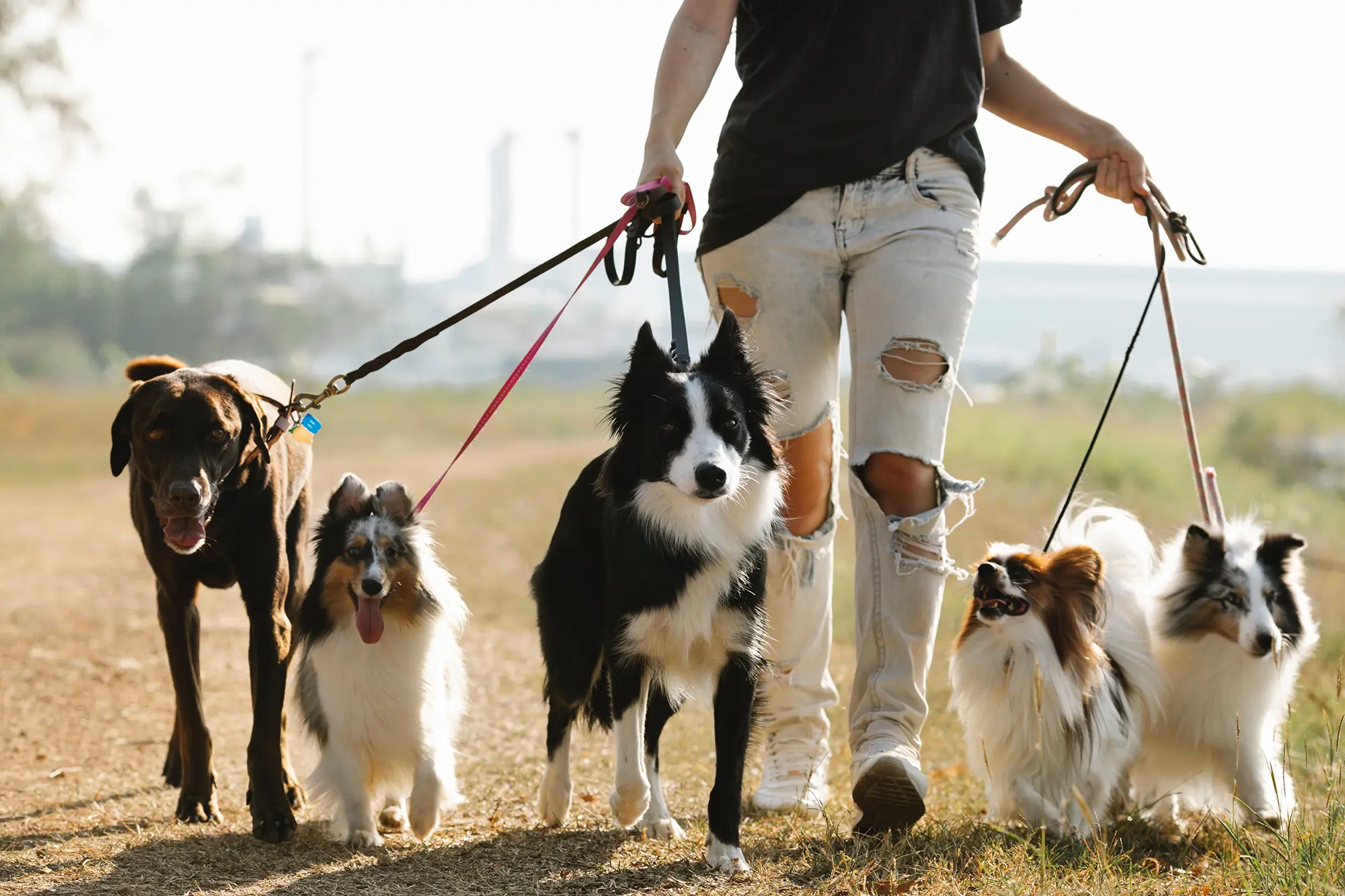why do animals like some people more than others?
Author: PawPots Team
 24 Jun 2025
24 Jun 2025
 3 min
3 min Have you ever noticed your dog wagging its tail excitedly for one person, while completely ignoring another? Or a cat that curls up in one guest’s lap but hides from everyone else? You're not alone. Animals often show clear preferences for certain people, and there’s real science—and instinct—behind it.
1. Scent Plays a Big Role
Animals have an incredible sense of smell. Dogs, for example, have up to 300 million scent receptors in their noses. That means they can pick up on subtle scents we don’t even notice.
Your personal scent—your skin, your clothes, even what you’ve eaten—can make a pet feel safe and familiar, or nervous and unsure. If someone smells like another pet, cleaning chemicals, or even fear, animals may keep their distance.
2. Body Language Matters
Animals are experts at reading body language. They can tell when someone is calm, anxious, tense, or excited—even without a word being said.
People who move slowly, speak gently, and offer an open posture are more likely to gain a pet’s trust. On the other hand, loud voices, quick movements, or staring directly into a pet’s eyes might be seen as threatening.
3. Energy and Emotion Are Contagious
Pets pick up on your energy. A relaxed and happy person makes animals feel safe. If someone is stressed, angry, or anxious, animals might mirror those feelings and avoid them.
This is why pets often bond quickly with people who are calm, kind, and emotionally steady. They feel like they can trust and relax around them.
4. Past Experiences Shape Preferences
Just like people, animals form memories—both good and bad. If a dog was mistreated by someone wearing a hat or deep voice, they might be wary of anyone with those traits, even if the new person is friendly.
On the flip side, if a cat had a loving owner who wore a specific perfume, they might be drawn to someone who smells similar.
5. Tone of Voice and Interaction
A soft, happy voice tends to attract animals. Harsh tones or yelling can scare them off. Also, people who know how to interact with pets—respecting their space, letting them come first—usually make a better impression.
Children, for example, might love animals but approach too quickly or grab too hard, which can make pets uncomfortable.
6. Treats, Toys, and Positive Association
It might seem obvious, but animals remember who gives them treats or plays with them. Positive associations go a long way. Even a shy animal can warm up when someone offers food, playtime, or gentle affection consistently.
How to Become Your Pet’s Favorite Human
If you want to strengthen your bond with a pet—whether it’s your own or someone else’s—try these simple tips:
Let them approach you first
Speak in a calm, soothing tone
Avoid sudden movements
Offer treats or toys gently
Be patient and consistent
Building trust takes time, especially with shy or sensitive animals. But the reward is worth it—a happy, tail-wagging friend who chooses you.
Final Thoughts
Animals are smarter and more intuitive than we often realize. Their preferences are shaped by scent, energy, tone, and past experiences. The good news? With kindness and understanding, you can win almost any pet over.
Whether you're a dog lover, a cat person, or a proud pet parent, being aware of what makes animals feel safe and loved can deepen your bond—and help you become every pet’s favorite human.

Give Back The Love
Show your love to your pets with our high-quality, delicious and healthy meals! Show your love to your pets with our high-
quality, delicious and
healthy meals!






